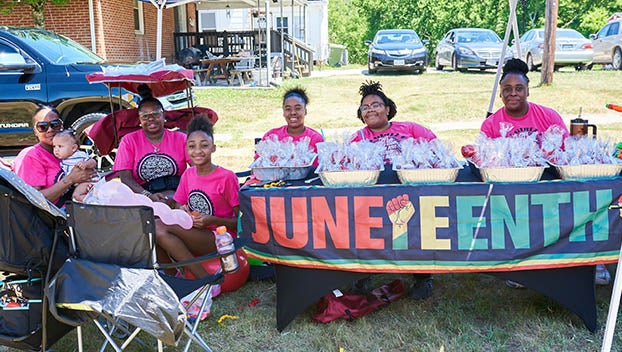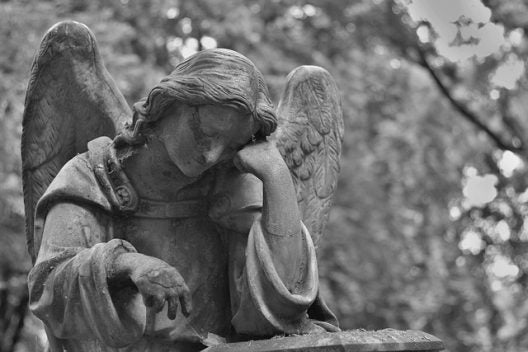A Look into the Past: Farmville’s ‘bad old days’ — past and present
Published 6:00 am Wednesday, September 23, 2020




|
Getting your Trinity Audio player ready...
|
Story by Dr. Jim Jordan
The world of Farmville is currently upside down!
The undoing of our social lives, economy, schools and our health by COVID-19 this year really feels unique. Surely nothing like this has ever happened before, we think.
But right here in Farmville something like this did happen before — three separate times.
During each crisis the people of Farmville faced some frightening turning points, but they lived through them — and so will we.
A wise Native American Indian once offered these words of wisdom: “There is nothing new under the sun. We are not the first people to walk a hard trail.”
Farmville’s previous “hard trails” included a military raid, a financial panic, and a fire that shattered the lives of 4,000 town folk.
MILITARY RAID ON FARMVILLE
It was sunrise on Thursday, April 6, 1865, and everyone in Farmville was awake. The booming of artillery could be heard from the direction of High Bridge three miles down the Appomattox River. Over the next 48 hours, two contending armies, the North and the South, would march through town.
An unknown resident and eyewitness of that morning’s events recorded this entry in a diary discovered by local historian Mrs. Marie E. B. DeLaney. It reads: “Farmvillians are making plans to protect themselves against shelling and plundering. Women and children are boarding up anything that moves and are being transported to homes of relatives out in the county. Blacks and whites are gathering behind closed and locked doors fearing that they may be forced to serve in either army.”
A major casualty of this armed invasion was the town college, founded in 1839 as the Farmville Seminary and renamed the Farmville College in 1860. On that fateful day in 1865, all 87 students gathered on the roof of the Rotunda where they spent the night. The college history relates what happened next: “A squadron of the Virginia Cavalry dashed by at a gallop, firing backward as they went. Behind them, out of the mist, rode the advance guard of the legions of Gen. Phillip Sheridan’s Northern Army. Minie balls fell about the building — one crashed through a window where several girls were standing, sending them into a panic.”
One of those frightened girls was Mary Lynn Harrison, a 17-year-old freshman. Forty-five years later she wrote an article in Harper’s Magazine describing the aftermath of that day: “Each day meals became scantier and poorer in quality, and we were told the food in the storeroom would soon be exhausted. Word came that the last wagons would move towards Burkeville that afternoon, and those girls who wished to reach Richmond could get to the railroad that way. The principal favored the scheme, and in a few minutes all the girls were on their way to (Union army) wagons on High Street. Captured Confederate cannons were our seats, there being no straw in the rough wagons. The girls had eaten nothing since the scanty breakfast that morning and each had with her only two small rolls of sour bread.”
Almost before folks could recover from that crisis, the second terrible trial descended on Farmville — financial panic compounded by an awful drought that lasted from the 1870s to 1890s.
DROUGHT AND DEPRESSION
The economic distress of the Civil War was made worse by a collapse of farming in Prince Edward and surrounding counties. A 20-year decline in rainfall ultimately led to a failure of tobacco crops.
John C. Page, of Hampden-Sydney, described that depressing time: “The prospect has never been more gloomy that at present — in fact, not one farmer in 50 can pay expenses. The price of tobacco is lower than has ever been known. We are in a disastrous financial condition!”
Between 1870 and 1893, half the businesses in Farmville collapsed into bankruptcy, including the Farmville Female College. With the education of women not widely favored, the college fell on hard times. A history of the school, that is now called Longwood University, relates what happened: “The stockholders decided to sell the college property, and after paying off the debts, distribute the proceeds amongst themselves. It was not until years later that they found a buyer. In 1884 the state of Virginia agreed to acquire the school and rename it The State Female Normal School in Farmville.”
Thanks to the commonwealth of Virginia, the college survived, and thanks to the return of rain in the 1890s, tobacco crops flourished. Once again both farmers and students could shop in the stores on Main Street.
Farmville had risen above its second crisis.
FIRE!!
Farmville’s third and most recent crisis is best described with one word: Fire!!
A page one story in the Herald’s April 25, 2001, issue clearly stated the prevailing mood: “An immense sense of grief hung over Farmville last night in the form of a glowing orange and black cloud — Longwood College was in flames.”
Over the next 27 hours, 181 firefighters poured 3.5 million gallons of water onto the largest fire central Virginia had ever seen. The 4,000 students on campus, 45% of the population of Farmville, immediately went home — there was no water left for sinks, toilets or kitchens. Classes were canceled for the remainder of the semester, and no final examinations were given.
Judy Winslow, a freshman from Massachusetts recalled that night: “Everything happened so suddenly. At 6:45 p.m. I was sitting in my American Lit class, and at midnight the building had burned down.”
Megan O’Day, a senior from Annandale, added: “There was no closure — no real goodbyes. We just left.”
Four years later in April 2005, renewal came as five reconstructed college buildings on High Street were dedicated and opened anew.
Today we have COVID-19 that has upended our world in so many ways. Looking back, we can see how those who came before us were stricken by similar catastrophes and fought on to win in the end.
Hopefully residents that follow in our footsteps will look back at this time and say, “In 2020 the people of Farmville bore the COVID burden with faith they would prevail.” It’s happened before, and it’s up to us to make sure it happens again.
Dr. Jim Jordan taught at Longwood University for almost 40 years before retiring as the Board of Visitors Distinguished Professor of Anthropology.









